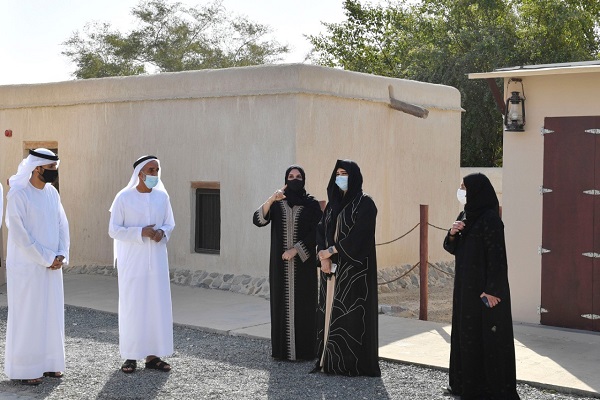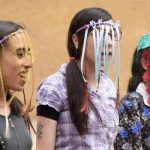The project aims to preserve both the region’s tangible and intangible heritage for future generations.
Sheikha Latifa bint Mohammed bin Rashid Al Maktoum, Chairperson of Dubai Culture and Arts Authority, has announced a documentary project titled Faces of Hatta. The launch of the project, which follows her recent visit to Hatta, aims to record the oral history and cultural heritage, drawing from the oral narratives of people who have witnessed its evolution, with the objective of preserving and transmitting it to future generations.
During her recent visit, Sheikha Latifa bint Mohammed met people from the Hatta community and discussed their knowledge of the region’s history and heritage.
Faces of Hatta will feature stories told by a group of Hatta residents, whose memories will serve as an important reference to document the area’s historical events and cultural heritage. Through audio and video recordings, the project aims to preserve both the region’s tangible and intangible heritage for future generations.
The project will create a detailed picture of Hatta’s heritage from accounts of members of the local community on their daily life and experiences and the area’s culture and history. The project covers a wide range of topics including the history of the Hatta Heritage Village, palm farms in Hatta, the irrigation system called ‘Al Falaj’, the role of women in the Hatta community, the traditional cuisine, celebrations, adornment and attire of the region and other topics related to the uniqueness of the local community.
Speaking about the importance of the project, Muna Faisal Al Gurg, Director of the Museums Department in Dubai Culture, said: “The documentation that will be done in Hatta is an important initiative to demonstrate how stories help create, foster and sustain communities. This will contribute to enriching the documentation of Dubai’s culture and spreading awareness about Emirati customs and traditions. This project is aligned with our mission to preserve and celebrate Emirati heritage and preserve it for future generations.”
Al Gurg added: “The history of Hatta, its lifestyle and stages of development before and after the establishment of the federation will be documented. We have developed a plan to roll out the project in phases. The first phase, which has already started, features a series of interviews with leading figures in the Hatta community. We believe this oral history project will provide researchers, historians and other users of this content a deep understanding of Hatta’s distinctive cultural heritage and history.”
















































































